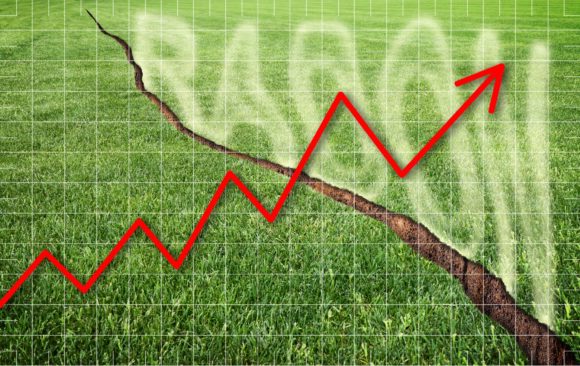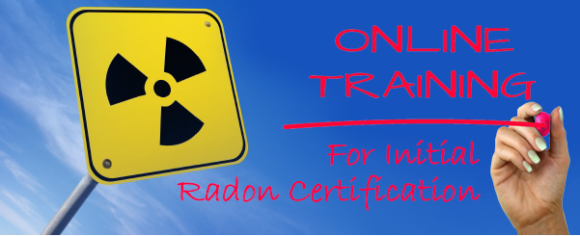
Conceptual image of a green mowed lawn showing radon gas escaping from a diagonal crack.
The Eastern Regional Radon Training Center (ERRTC), administered by Rutgers Office of Continuing Professional Education, is now offering the training program required for national radon measurement certification as a self-paced, online course.
For the past 30 years, the center has provided classroom-based radon measurement and mitigation training on the Rutgers–New Brunswick campus. This limited training to the home inspectors, building contractors and public health officials who had the time and means to travel and attend class in the Garden State.
“We created an online version of our 16-hour radon measurement proficiency class so that everyone and anyone with internet access can participate and hopefully start working to prevent radon-related deaths around the world,” said ERRTC program coordinator Joseph Canzano.
“Radon is a serious threat that far too few people know about,” he added.
A naturally occurring, radioactive gas, radon is invisible and odorless. Produced by decaying uranium, it is present in nearly all soils. Although low levels of radon are found in the air we breathe, long-term exposure to high levels of radon can cause health problems.
For example, radon is the leading cause of lung cancer for non-smokers. In fact, according to the U.S. Environmental Protection Agency (EPA), radon is responsible for 21,000 lung cancer deaths each year.
 To determine if a building’s indoor air quality is safe, measurement professionals test the levels of radon. If a level of 4.0pCi/L– as determined by the Environmental Protection Agency as the action level measured over a minimum of 48 hours–is present, a mitigation system is recommended to reduce exposure.
To determine if a building’s indoor air quality is safe, measurement professionals test the levels of radon. If a level of 4.0pCi/L– as determined by the Environmental Protection Agency as the action level measured over a minimum of 48 hours–is present, a mitigation system is recommended to reduce exposure.
Trained technicians can install remediation systems in homes and buildings to reduce unsafe levels of radon. A typical radon mitigation system includes a suction fan and PVC piping. These units are relatively inexpensive and are highly effective at removing the risk.
To become a nationally certified radon measurement professional, one must attend an approved entry-level course, pass the certification exam and submit a complete application to the licensing board. There are two equally recognized organizations in the U.S., the National Radon Proficiency Program (NRPP) and the National Radon Safety Board (NRSB). Some states, such as New Jersey, have their own certification procedures, therefore it’s important to check specific state requirements before taking the online course.
ERRTC’s 16-hour online radon measurement proficiency program is approved by NRPP, NRSB, and NJ as the entry-level course required for initial certification. The curriculum covers the physics of radiation and atomic decay, how radon gas behaves and the health risks associated with long-term exposure. Trainees leave with a comprehensive understanding of how to select, place and operate various types of radon measurement devices.

